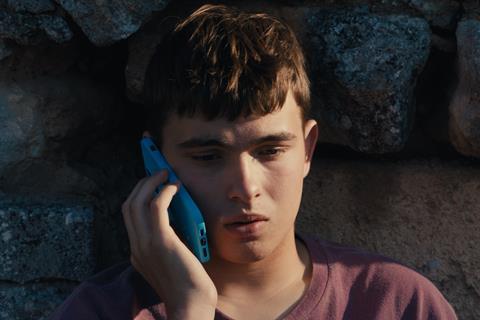
The coming-of-age drama Enzo, set in southern France, that opens this year’s Directors’ Fortnight is billed as ‘a film by Laurent Cantet, directed by Robin Campillo’. The ostensibly odd credit perfectly sums up Campillo’s collaboration with his late, longtime friend and collaborator, according to Campillo.
“It’s not my film,” he insists. “It’s the person who carries the project in his head and heart and feels it is necessary to make the film — that is Enzo for Laurent. But I directed it.”
The turn of events that led to this began when writer/director Cantet, who won the Palme d’Or in 2008 for The Class, was diagnosed with cancer in 2023 as he was about to embark on what would be his final project. Friends for more than 40 years and collaborators on multiple features — “I’ve edited six of his films and co-wrote five of them,” says Campillo — Cantet’s diagnosis was the catalyst for a strong and bonding final collaboration.
“I told him we could work together as we always had, that I’d help co-write the script and be on set and edit the film, and if he was feeling ill, I could be a go-between with the actors.”
Tale of friendship
Writing as a trio with Gilles Marchand, another longtime friend and collaborator, the three men came up with the story of Enzo, a 16-year-old boy who defies his bourgeois parents’ expectations by starting a masonry apprenticeship where he meets a charismatic Ukrainian named Vlad. Newcomers Eloy Pohu and Maksym Slivinskyi star alongside Élodie Bouchez and Pierfrancesco Favino as Enzo’s parents. The film is produced by Marie-Ange Luciani via Les Films de Pierre, while co-producers are Italy’s Lucky Red, Belgium’s Les Films du Fleuve, and France’s Page 114, France 3 Cinéma and Ami Paris; mk2 Films is handling sales.
In April 2024, by which time the script had been completed and casting was at an advanced stage, Cantet ended up back in hospital. “We knew it was a tough diagnosis, but things accelerated quickly,” says Campillo. “Laurent was able to tell the two main actors they had been cast. One week later, he was gone.”
The filmmaker died at the end of April, and a six-week shoot in La Ciotat, east of Marseille, kicked off only a few weeks later. “I found it was more joyful and logical than to just stop everything. It would have been like a second death,” says Campillo. “Jumping into filming right away prevented me from diving into sadness. It wasn’t a film on commission, it was the film of a friend, a friend who is responsible for bringing me into the world of cinema.”
The contrast between light and dark extended to the film’s themes, which explore the tension between a young Ukrainian fearful of being sent to fight in his country’s war with a teenager who is drawn to those same frontlines, having chosen to turn his back on the easy life offered by his family’s circumstances. “Enzo is an enigma to us and to himself,” says Campillo. “He doesn’t feel like he fits into his family or his social class, and he is also experiencing fluidity both sexually and politically.”
While the story is reminiscent of Luca Guadagnino’s Call Me By Your Name, another coming-of-age romantic drama set against a summer Mediterranean backdrop, Campillo says he and Cantet wanted to avoid cliché associated with typical teenage angst and desire. “It’s a sexual awakening without sex,” says Campillo, who is back in Cannes for the first time since he won the grand prix for 120 BPM (Beats Per Minute) in 2017.
While he is delighted to be showing Enzo at Cannes and says he hopes the screening will be “a celebration”, Campillo admits, “Some moments are harder than others. Now that I am working on my own films, it is hard not to be able to show scripts or talk about them with Laurent.”
Campillo is currently working on three projects at once, explaining that “Laurent’s sudden illness shook me up and got me thinking about the time I have left.” Next up is a French- and English-language project, produced by Luciani, that he is writing and hoping to shoot in France next year, with negotiations underway for “a well-known American actress” to star.
In the meantime, Campillo looks forward to one last ‘film by Laurent Cantet’ in Cannes. “Would Laurent have liked the film?” he inquires. “I hope so. He was very modest and he also admired my work. I’m happy I did it.”















![[L-R]: Amanda Villavieja, Laia Casanovas, Yasmina Praderas](https://d1nslcd7m2225b.cloudfront.net/Pictures/274x183/6/4/1/1471641_pxl_20251224_103354743_618426_crop.jpg)









No comments yet